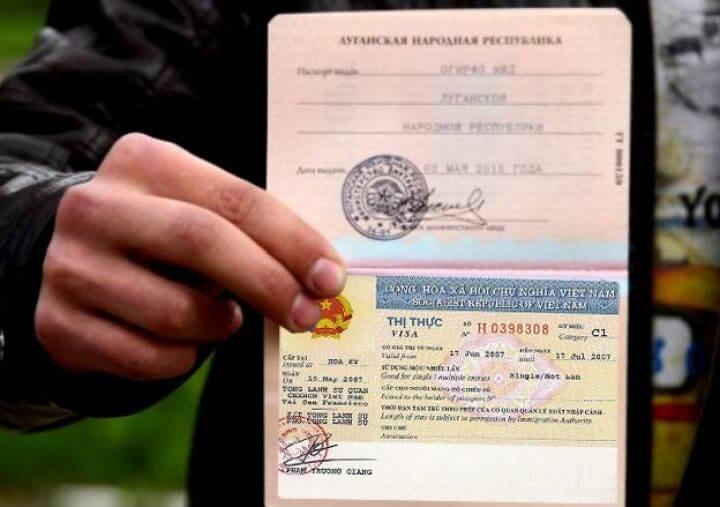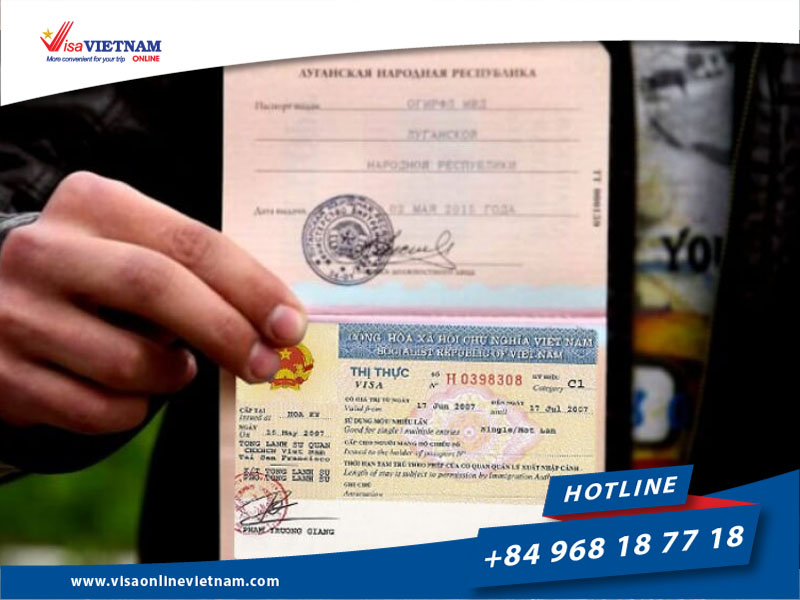Traveling to Vietnam from the Turks and Caicos Islands requires a valid visa. This article provides detailed information about the requirements, application process, types of visas available, validity and duration, fees, visa on arrival versus embassy visa options, e-visa, necessary documents, visa extensions, as well as helpful tips and advice for Turks and Caicos Islands citizens applying for a Vietnam visa.

Table of Contents
Requirements for Vietnam Visa for the Turks and Caicos Islands
To obtain a Vietnam visa as a citizen of the Turks and Caicos Islands, certain requirements must be met. The primary requirements include:
- Passport: A valid passport with a minimum validity of six months beyond the intended stay in Vietnam is mandatory. Ensure your passport has blank pages for visa issuance.
- Visa Application Form: Complete the visa application form accurately and legibly. The form can usually be obtained online or at the Vietnamese embassy/consulate.
- Photos: Provide two recent passport-sized photographs. The photos should have a white background and meet the specified size and format requirements.
- Proof of Travel Arrangements: Present proof of travel arrangements, such as flight itineraries or hotel reservations.
- Financial Proof: Show evidence of sufficient financial means to cover your stay in Vietnam. This could include bank statements, credit card statements, or any other applicable financial documents.
- Visa Approval Letter: For certain visa types, such as visa on arrival, a visa approval letter issued by the Vietnamese Immigration Department is required. This letter can be obtained through a reliable travel agency or visa processing service.
-

Application Process for Vietnam Visa from the Turks and Caicos Islands
The application process for a Vietnam visa from the Turks and Caicos Islands involves the following steps:
- Choose the Visa Type: Determine the appropriate visa type based on your purpose of visit, such as tourism, business, or work. Refer to the next section for an overview of the types of Vietnam visas available for citizens of the Turks and Caicos Islands.
- Select the Application Method: Decide whether you prefer applying for a visa through the Vietnamese embassy/consulate or opt for a visa on arrival or e-visa if eligible.
- Complete the Application Form: Fill out the visa application form accurately and provide all necessary information. Ensure that the information matches the details on your passport.
- Gather Required Documents: Collect all the required documents as specified in the visa application guidelines. This typically includes your passport, photographs, visa approval letter (if applicable), proof of travel arrangements, and financial proof.
- Submit the Application: Submit your completed application form along with the supporting documents either in person at the embassy/consulate or via the designated online portal for visa on arrival or e-visa applications.
- Pay the Visa Fee: Pay the visa fee, which varies depending on the visa type, processing method, and duration of stay. The fee can usually be paid in cash or through accepted payment methods specified by the embassy/consulate or online application system.
- Collect Your Visa: If applying through the embassy/consulate, wait for the processing time to receive your visa. For visa on arrival or e-visa, follow the instructions provided upon approval to obtain your visa at the designated entry points.
-

Types of Vietnam Visas available for Turks and Caicos Islands citizens
When applying for a Vietnam visa from the Turks and Caicos Islands, several visa types are available, depending on the purpose and duration of your visit. The common visa types include:
- Tourist Visa (DL): This visa is suitable for individuals visiting Vietnam for tourism purposes. It allows a single entry or multiple entries during the specified validity period.
- Business Visa (DN): A business visa is intended for individuals engaging in business activities in Vietnam, such as attending conferences, meetings, or signing contracts. Like the tourist visa, it can be issued for single or multiple entries.
- Work Visa (LD): For those planning to work in Vietnam, a work visa is required. This visa type is typically sponsored by a Vietnamese employer and is subject to specific regulations and documentation.
- Student Visa (DH): Students enrolled in educational institutions in Vietnam should apply for a student visa. The visa is valid for the duration of the study program.
- Transit Visa (TT): If you have a layover in Vietnam and need to leave the airport, a transit visa allows you to do so for a limited period (usually less than 72 hours).
- Diplomatic and Official Visas: Diplomatic and official visas are issued to individuals traveling under diplomatic or official capacity on behalf of their respective governments.
It’s essential to select the visa type that aligns withyour specific purpose and duration of stay in Vietnam. Make sure to review the requirements and limitations associated with each visa type before making your selection.

Validity and Duration of Vietnam Visa for Turks and Caicos Islands nationals
The validity and duration of a Vietnam visa for Turks and Caicos Islands nationals vary depending on the visa type granted.
- Tourist Visa: A tourist visa allows for a single entry or multiple entries. The validity period can range from 30 days to 90 days, depending on the visa duration requested during the application process.
- Business Visa: Similar to the tourist visa, a business visa can be issued for single or multiple entries. The validity period can also range from 30 days to 90 days. However, it is important to note that the actual duration of stay permitted per entry may be shorter and determined by the Vietnamese immigration authorities upon arrival.
- Work Visa: Work visas are typically valid for a longer period to accommodate the duration of the employment contract or work assignment in Vietnam. The validity can range from several months to one year or more, depending on the specific circumstances and employer sponsorship.
- Student Visa: Student visas are generally valid for the duration of the study program in Vietnam. It is crucial to ensure that the visa remains valid throughout your intended period of study.
- Transit Visa: Transit visas have a limited validity period, usually corresponding to the duration of the transit layover. They allow travelers to leave the airport and explore Vietnam briefly before continuing their journey.
It’s important to note that the duration of stay allowed per entry is typically shorter than the overall validity period specified in the visa. If you wish to extend your stay beyond the permitted duration, you’ll need to apply for a visa extension (discussed in a later section).
Vietnam Visa fees for Turks and Caicos Islands passport holders
The Vietnam visa fees for Turks and Caicos Islands passport holders can vary depending on several factors, including the visa type, processing method, and duration of stay. Here is a general overview of the fees involved:
- Visa Approval Letter Fee: For visa on arrival applications, you’ll need to pay a fee to obtain the visa approval letter. The fee amount can vary based on the agency or service you choose for processing.
- Stamping Fee: Upon arrival in Vietnam with a visa on arrival, a stamping fee must be paid at the immigration checkpoint. The stamping fee is typically collected in cash (USD or VND) and varies depending on the visa type and duration of stay.
- Embassy/Consulate Visa Fee: If you prefer applying for a visa through the Vietnamese embassy or consulate, you will need to pay the visa fee, which also depends on the visa type and duration requested.
It’s important to check the latest fee structure and payment methods accepted by the relevant authorities or visa processing services. The fees mentioned above are subject to change, so it’s advisable to confirm the exact amounts before initiating the visa application process.
Vietnam Visa on arrival vs. Embassy visa for Turks and Caicos Islands travelers
Turks and Caicos Islands travelers have the option to apply for a Vietnam visa either through the embassy/consulate or opt for a visa on arrival (VOA) if eligible. Here’s a comparison of these two application methods:
Vietnam Visa on Arrival:
- Convenience: VOA offers a convenient option as the application can be completed online without needing to visit the embassy or consulate beforehand.
- Availability: VOA is available for air travel only, as it requires obtaining the visa stamp upon arrival at one of the designated international airports in Vietnam.
- Visa Approval Letter: To obtain VOA, you first need to acquire a visa approval letter from a reputable travel agency or visa processing service. The letter serves as authorization to pick up the visa upon arrival.
- Payment: The visa approval letter fee is paid to the service provider, while the stamping fee is paid directly at the airport in cash (USD or VND).
- Processing Time: The processing time for the visa approval letter can vary but is often faster compared to embassy/consulate applications.
Embassy/Consulate Visa:
- Application Process: Embassy/consulate visa applications require visiting the Vietnamese embassy or consulate in your country of residence or nearest location. The application form and necessary documents must be submitted in person or by mail.
- Processing Time: The processing time for embassy/consulate visa applications can take several days to weeks, depending on the embassy’s workload.
- Suitable for All Entry Points: Unlike VOA, an embassy/consulate visa allows entry through all ports of Vietnam (air, land, or sea).
- Payment: The visa fee is typically paid directly to the embassy or consulate, either in cash or via accepted payment methods specified by the respective diplomatic mission.
The choice between VOA and embassy/consulate visa depends on your specifictravel preferences and circumstances. If you plan to arrive in Vietnam by air and value the convenience of an online application, VOA can be a suitable option. However, if you prefer having the visa in hand before your departure or if you’re entering Vietnam through a land border or seaport, applying through the embassy or consulate is the recommended choice.
Vietnam e-Visa for Turks and Caicos Islands citizens
Vietnam offers e-visa facilities to citizens of various countries, including the Turks and Caicos Islands. An e-visa is a digital visa that allows for entry into Vietnam for tourism, business, or transit purposes. Here are some key points to know about the Vietnam e-visa:
- Eligibility: Citizens of the Turks and Caicos Islands are eligible to apply for a Vietnam e-visa if they meet the requirements set by the Vietnamese government.
- Application Process: The e-visa application can be completed entirely online through the official website provided by the Vietnamese Immigration Department. You’ll need to fill out the application form, upload the required documents (passport bio page photo and passport-sized photograph), and pay the processing fee online.
- Processing Time: The processing time for e-visas is generally around three business days. However, it’s advisable to apply well in advance to account for any potential delays or unforeseen circumstances.
- Validity and Duration: The e-visa allows for a single entry into Vietnam and is valid for up to 30 days. The duration of stay permitted is also 30 days from the intended date of entry.
- Entry Points: With an approved e-visa, you can enter Vietnam through any of the designated international airports, land crossings, or seaports specified by the Vietnamese authorities.
- Printed Copy Requirement: It’s important to note that while the e-visa is electronically linked to your passport, it’s recommended to carry a printed copy of the e-visa approval for presentation upon arrival in Vietnam.
The Vietnam e-visa offers a convenient and streamlined process for obtaining a visa without needing to visit an embassy/consulate. However, it’s crucial to ensure eligibility, carefully follow the application guidelines, and complete the process well in advance of your travel dates.
Documents needed for Vietnam Visa application from the Turks and Caicos Islands
When applying for a Vietnam visa from the Turks and Caicos Islands, you’ll need to prepare and submit several essential documents. Here’s a list of commonly required documents:
- Passport: Ensure your passport is valid for at least six months beyond your intended stay in Vietnam. It should have blank pages for visa issuance.
- Visa Application Form: Complete the visa application form accurately and legibly. The form can usually be downloaded from the official website of the Vietnamese embassy or consulate or obtained in person.
- Passport-sized Photographs: Provide two recent passport-sized photographs with a white background. Follow the specified size and format requirements.
- Proof of Travel Arrangements: Present proof of your travel arrangements, such as flight itineraries or hotel reservations. This demonstrates your intention to enter and leave Vietnam within the permitted duration.
- Financial Proof: Show evidence of sufficient financial means to support your stay in Vietnam. This can include bank statements, credit card statements, or any other relevant financial documents.
- Visa Approval Letter (if applicable): For certain visa types, such as visa on arrival, you’ll need a visa approval letter issued by the Vietnamese Immigration Department. This letter can be obtained through a reliable travel agency or visa processing service.
It’s crucial to carefully review the specific requirements outlined by the Vietnamese embassy/consulate or the online application portal for visa on arrival and e-visa applications. Failure to provide accurate and complete documentation may result in delays or rejection of your visa application.
Vietnam Visa extension for Turks and Caicos Islands visitors
If you’re already in Vietnam and wish to extend your stay beyond the permitted duration of your visa, you can apply for a visa extension through the Vietnamese Immigration Department. Here are the key points to know about visa extensions:
- Eligibility: Visa extensions are typically granted for tourist visas, business visas, and some other non-immigrant visa categories. It’s advisable to consult with the immigration authorities or seek professional advice regarding eligibility criteria.
- Application Process: To apply for a visa extension, submit your passport, the completed visa extension application form, and any other required documents to the local Immigration Office in Vietnam. The specific documents needed may vary based on your visa type and individual circumstances.
- Processing Time: The processing time for visa extensions can vary, but it’s recommended to submit your application at least seven days before your current visa expires to allow sufficient processing time.
- Fees: Visa extension fees vary depending on the type of visa and the duration of the extension requestedfrom the Turks and Caicos Islands. The fee structure for visa extensions can be obtained from the local Immigration Office or through reliable sources.
- Overstaying Penalties: It’s crucial to adhere to the allowed duration of stay specified on your visa. Overstaying your visa can result in fines, penalties, and potential difficulties with future travel to Vietnam. If you have unavoidable circumstances that prevent you from leaving on time, it’s advisable to contact the Immigration Department or seek professional advice as soon as possible to discuss your options.
It’s important to note that not all visa types are eligible for extensions, and the approval of a visa extension is at the discretion of the Vietnamese authorities. To ensure compliance with visa regulations, it’s recommended to consult with the immigration authorities or seek professional advice regarding your specific situation and visa extension requirements.
Tips and Advice when applying for a Vietnam Visa
Here are some tips and advice to consider when applying for a Vietnam visa from the Turks and Caicos Islands:
- Check Requirements and Eligibility: Before initiating the visa application process, carefully review the requirements and eligibility criteria for your intended visa type. This will help ensure that you have the necessary documents and meet the qualifications.
- Apply in Advance: It’s advisable to apply for your Vietnam visa well in advance of your planned travel dates. Processing times can vary, and unforeseen delays may occur. Applying early allows sufficient time for processing and reduces the risk of last-minute complications.
- Choose the Right Visa Type: Select the visa type that aligns with your purpose of visit and duration of stay in Vietnam. Each visa type has specific requirements and limitations, so ensure you choose the most appropriate option.
- Plan Your Travel Itinerary: Have a clear travel itinerary and supporting documents, such as flight itineraries and hotel reservations, to demonstrate your intention to enter and leave Vietnam within the permitted duration.
- Use Reliable Service Providers: If opting for visa on arrival or e-visa, choose reputable travel agencies or visa processing services to obtain your visa approval letter or process your e-visa. Research customer reviews and ratings to ensure reliability and avoid potential scams.
- Follow Instructions Carefully: Whether applying through the embassy/consulate, visa on arrival, or e-visa, read and follow the instructions provided by the respective authorities or service providers. Pay attention to document requirements, payment methods, and any additional guidelines to avoid delays or complications.
- Maintain Validity and Adhere to Regulations: Ensure that your passport remains valid for at least six months beyond your intended stay in Vietnam. Adhere to the regulations regarding the duration of stay specified on your visa to avoid penalties or difficulties with future travel plans.
- Respect Vietnamese Laws and Customs: Familiarize yourself with the laws and customs of Vietnam before your visit. Respect local traditions, customs, and cultural norms during your stay.
It’s recommended to stay updated with the latest information and changes in visa requirements and regulations by consulting reliable sources, such as official government websites or contacting the Vietnamese embassy or consulate in your country.
Please note that the information provided here is based on general knowledge and guidelines, and it’s advisable to verify the specific details and requirements applicable to your situation with the relevant authorities or seek professional advice.

Leave a Reply